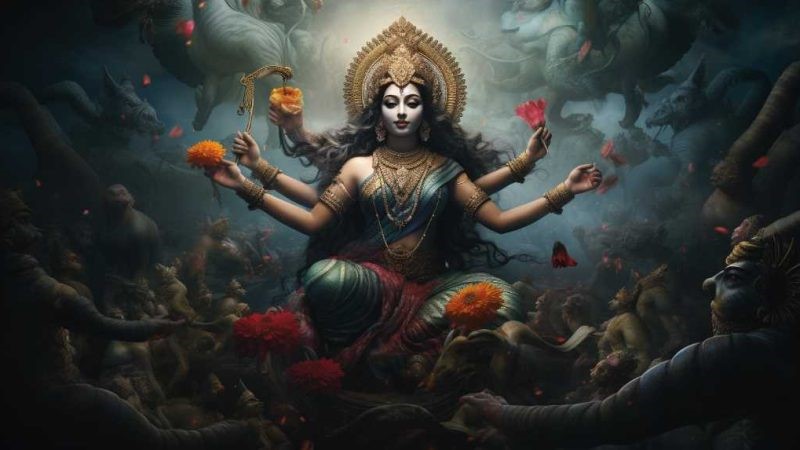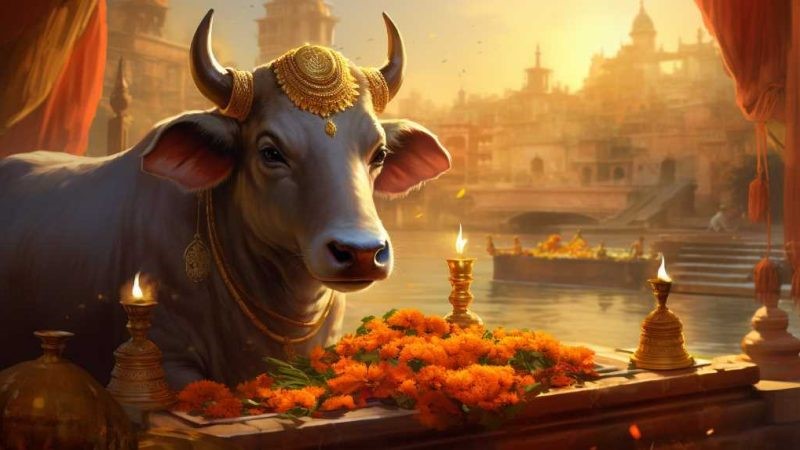The Interfaith Query Do Sikhs Worship Hindu Gods

People often wonder how different religions share beliefs, especially in places like South Asia where many religions coexist. One common question is whether Sikhs, who follow a religion called Sikhism, worship the gods that are part of Hinduism. Sikhism started in the 15th century with Guru Nanak Dev Ji, and it teaches that there is only one God who doesn’t have a physical form. This is different from Hinduism, which has many gods.
Even though Sikhism is clear about worshiping only one God, some people get confused because Sikhism and Hinduism have been close to each other for a long time, both in culture and location. To understand why Sikhs don’t worship Hindu gods, it’s helpful to look at Sikh beliefs and how they’ve interacted with Hindu traditions over time. This helps clear up misunderstandings and shows us the rich variety of religious practices in India.
Let’s dive deeper. Sikhism is all about loving and living for that one God who is everywhere and in everything. This idea is quite different from Hinduism, which has a variety of gods with different roles and stories. The confusion sometimes happens because, over centuries, Sikhs and Hindus have lived side by side, shared cultural festivals, and even family ties. However, when it comes to worship, Sikhs focus solely on their one God.
Understanding this helps us see how religions can influence each other while still keeping their unique beliefs. It shows that religious identity is complex and shaped by history and culture. It also highlights the importance of learning about different faiths to promote respect and harmony among people with different beliefs. By exploring these ideas, we not only get the facts straight but also grow to appreciate the many ways people find meaning in life through spirituality.
Core Beliefs of Sikhism
Sikhism is based on the belief in a single, all-powerful God who is not like the many gods in Hinduism. Sikhs follow the teachings of their ten Gurus, which are written in their holy book, the Guru Granth Sahib.
Everyone is considered equal in Sikhism, which means they don’t believe in social classes like the caste system. Sikhs live by working honestly, giving to charity, and helping out in their communities, a practice called Seva. The idea of Waheguru, or the Supreme Being, is very important in Sikh prayer and is thought of as a divine force that is always there.
Sikhism teaches that to find inner peace and to break free from the cycle of being born again and again, one should focus on spiritual learning and remember God’s name through meditation. This approach helps people to connect deeply with their faith and find a sense of calm in their lives. By living this way, Sikhs aim to achieve enlightenment, which is a profound understanding of life and the universe.
Historical Context of Sikh-Hindu Relations
Sikhism and Hinduism have been closely linked throughout history yet remain distinct religions. Guru Nanak, who founded Sikhism in the 15th century in Punjab, was influenced by both Hindu and Islamic ideas. Sikhism stands out because it believes in one God and does not worship idols, unlike some Hindu practices. However, Sikhs and Hindus often celebrate the same festivals, speak similar languages, and share some customs.
The reason why this connection matters is that it shows how different religious traditions can influence each other and yet maintain their unique identities. Even though Sikhs and Hindus celebrate Diwali, they do so for different historical reasons.
Sikhism has also faced its own challenges, such as being targeted by Mughal rulers, which has strengthened its separate identity. Understanding the shared history and separate paths of Sikhism and Hinduism helps us appreciate the diversity within the Indian subcontinent.
Sikhism’s Stance on God
Sikhism is a religion that believes in a single, shapeless God, which makes it different from Hinduism, even though it has historical connections with it. They call this God ‘Waheguru,’ who they see as the timeless and all-encompassing creator that people can’t fully grasp. Unlike Hinduism, which has many gods, Sikhism doesn’t support the worship of gods made into idols or images.
The most important book for Sikhs, the Guru Granth Sahib, explains Sikh beliefs. It tells them that constantly thinking about God’s name is the way to understand life’s true meaning and to find spiritual freedom. Sikhs strive for a close and immediate bond with Waheguru. They follow the wisdom of their ten religious leaders, the Sikh Gurus, and their holy book. They believe this can be done without involving religious officials or complicated ceremonies.
In practicing their faith, Sikhs focus on remembering God in everything they do. This is crucial because it helps them stay connected to their beliefs and live a life that honors their spiritual values. By keeping God in mind, they aim to be aware of their thoughts and actions, which can lead to a more purposeful and fulfilling life. This approach to spirituality is personal and direct, which means every Sikh has their own connection with Waheguru without depending on anyone else to guide them.
Common Misconceptions Addressed
Sikhism and Hinduism share some cultural practices because they both originated in the same area, which is India. However, it’s not true that Sikhs and Hindus worship the same gods. Sikhism is based on the belief in one God, unlike Hinduism, which has many gods. This is a key difference between the two religions. Guru Nanak, who started Sikhism in the 15th century, taught the importance of believing in a single God.
People often get confused because both religions have been around in India for a long time, sharing some customs. But Sikhism does not involve idol worship, which is common in Hinduism. The holy book of Sikhism, called the Guru Granth Sahib, talks about remembering and following the teachings of one God. It’s a guide for how Sikhs should live their lives and shows that their beliefs are unique.
It’s important to understand these differences. When we do, we can show more respect to each other, especially when talking about religion. Conversations about faith are better when we know what each religion really says and practices.
Interfaith Respect and Understanding
Understanding how Sikhs and Hindus practice their faith can help us have important talks about respecting different religions. Knowing that Sikhism believes in one God while Hinduism has many gods helps us see the differences between these two religions. It’s important for followers of both religions to live together in peace, and this starts with respecting each other’s beliefs. Talking openly and without bias is key to getting rid of wrong ideas and building a welcoming society. When people talk respectfully with each other, they can learn new things and help make the world a better place where everyone gets along.
For example, when Sikhs celebrate Vaisakhi, their New Year festival, Hindus might not participate in the same rituals, but they can show support by joining in the community meals, known as langars, that Sikhs host. Similarly, during Diwali, the Hindu festival of lights, Sikhs might not worship the Hindu deities but can appreciate the shared themes of victory of good over evil. These are specific ways that understanding and respect can be shown in action.
We should talk to each other the way we do with friends, using everyday words and explaining things clearly. This makes it easier for everyone to understand and connect. Writing in detail and using lively descriptions can make the conversation more interesting and helpful.
Conclusion
Sikhism is a religion that believes in only one God who has no form. Sikhs do not pray to the gods of Hinduism. Sikh teachings focus on praying to just one god. Understanding the difference between these religions is important because it helps people from different faiths get along better.
Even though Sikhism and Hinduism have some history and culture in common, both Sikh and Hindu communities can share common values and have respect for each other. This respect is important for bringing people together and creating peace.






